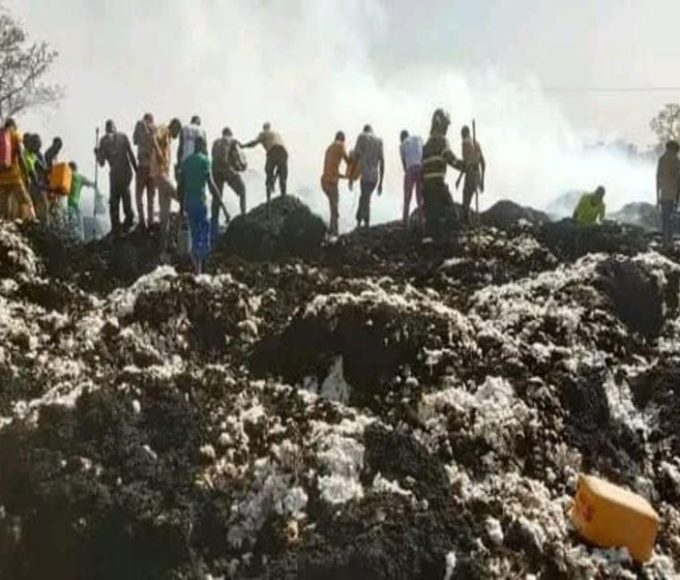
“We will Close Borders to Stop Food Shortage”- Kyari

Abubakar Kyari, the Minister of Agriculture and Food & Security, has disclosed that the Federal Government is considering closing the nation’s borders to address food shortage.
Kyari, on Friday, revealed this to the Senate Joint Committees on Finance, Banking and other Financial Institutions and National Planning. Recall that West Africa Weekly reported protests in different parts of the country over the unbearable cost of living and shortage of food. The Minister said the government was taking decisive actions to provide a solution but the porous borders are a significant challenge to food security.
Closing the borders would counter the influx of undocumented exports and rampant food smuggling, according to him.
Kyari said: “What we are faced with today is the undocumented exports of food to our neighboring countries. Today one CFA is N2.50 that is to say 100 Cefas is 2,200. That used to be N400 some few years ago.
“When you look at our neighboring countries, all four neighboring countries around us, the CFA is a hard currency, and because of the devaluation of the Naira, our food is the cheapest around the neighborhood.
“So you find a lot of undocumented exports and smuggling across our porous borders to these neighboring countries.”
The Minister said the situation is exacerbated by the unavailability of foreign exchange, with investors buying sought-after crops at exorbitant prices without repatriating the earnings.
In Kyari’s words: “Export is a good thing for us, but when you don’t earn the foreign exchange and it is not repatriated to us and the government doesn’t have any income from it, I am sorry, that is not a good sign. So what we are trying to do here is to ramp up production.
“I think it is an issue of economics between supply and demand, but unfortunately, we have to see how we can secure food for our 230 million citizens, and at the same time, if this economic situation continues, then you have to seal up the borders which is against the ECOWAS protocol or produce for the whole of West Africa.
“That is the unfortunate thing, but if we can secure the land and have farmers go back to the farm, I am sure we can do it. We have 70 million hectares of land available in Nigeria.”
Kyari, in essence, outlined the government’s dual approach: ramping up local production and exploring the possibility of sealing borders if economic challenges persist.
A PEEK AT THE PAST:
Nigeria is bordered to the north by Niger, to the west by Benin, to the east by Chad and Cameroon, and the south by the Gulf of Guinea of the Atlantic Ocean. 2019 represents a somewhat grim period in the landscape of Nigeria’s economy as all four borders were shut.
The past border closure, ordered by former President, Muhammadu Buhari, significantly impacted trade and exacerbated the rise in prices of locally made products. It was a counterproductive measure that drastically affected the socio-economic growth of the country’s economy. A better alternative seems to be: leveraging modern technology to combat smuggling and creating a conducive operating environment for local entrepreneurs, particularly those in the agricultural sector.
Read more: Insecurity: Kidnappers Attacks GUO Motors, Kill Driver, Others Abducted
About The Author
Related Articles
Zimbabwe Rejects $350m US Health Deal Over Sovereignty Dispute
Zimbabwe has formally withdrawn from negotiations on a proposed $350 million health...
ByWest Africa WeeklyFebruary 25, 2026Niger’s President Outlines Vision for Strategic Partnership with China
Niger’s Head of State, General Abdourahmane Tiani, has articulated a renewed vision...
ByWest Africa WeeklyFebruary 25, 2026Fire Destroys 140 Tonnes of Cotton in Western Burkina Faso
A major fire has destroyed more than 140 tonnes of cotton in...
ByWest Africa WeeklyFebruary 25, 2026Mali’s New Ambassador to Angola Presents Credentials, Pledges Stronger Bilateral Ties
Diplomatic relations between Mali and Angola entered a new phase on February...
ByWest Africa WeeklyFebruary 25, 2026











